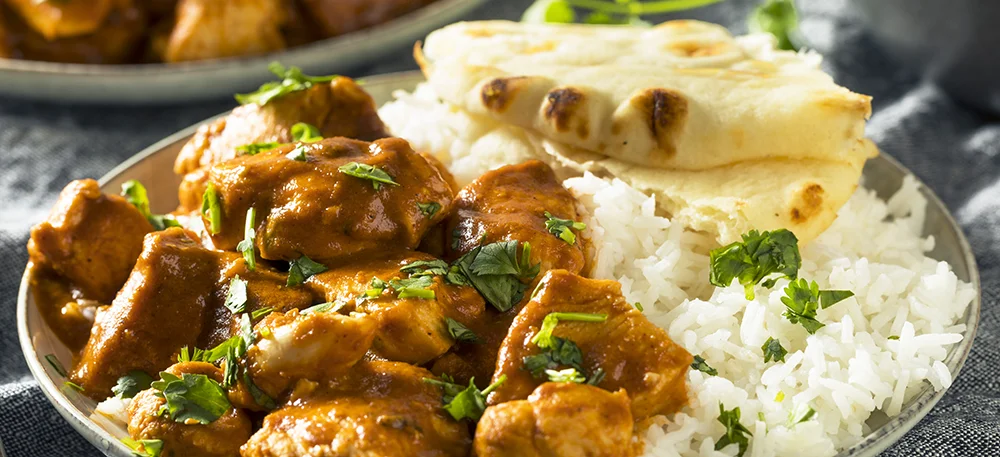
This year is the 20th Anniversary of National Curry Week, and what better excuse do you need to enjoy a delicious curry?
What is National Curry Week?
It’s a week-long celebration of everything related to curry. Everyone loves a curry whether it is the gentle tikka masalas and kormas or the stronger madras and vindaloos that you enjoy.
National Curry week first started back in 1998 by Peter Grove, who decided to celebrate Indian cuisine and raise awareness of the wonderful dishes that are served up by chefs from the Indian continent while raising money for charity.
Peter was a food journalist with a terrific love of curry and ethnic food; he was a sports journalist for ITV’s World of Sport, the Daily Express and the Daily Mail.
When is National Curry Week?
This year it starts on 22nd October and runs until 28th October.
What are England’s most popular curries?
The UK’s three most popular curries are said to be Chicken Tikka Masala, Korma and Jalfrezi with pilau the number one rice and garlic, the most popular naan.
Indian food was first introduced to England in 1809 during the Victorian Era and the period of British rule in the Indian subcontinent.
According to blog.eftours.com the first curry shop was opened in London over 200 years ago, and Indian Food is now among the most popular cuisines in the UK.
It is alleged that Chicken Tikka Masala was invented in Glasgow in 1971.
What is Balti? Balti is the actual term for the metal bowl or bucket your Balti dish is served in.
The largest naan ever made, according to the Guinness Book of Records, was made in Canada in 2016 and weighed a colossal 32 kg. It was 4.96 metres long and 1.26 m wide!
Did you know that London has more Indian restaurants than Mumbai or Delhi?
Did you know that the Portuguese introduced chilli peppers (native to Mexico) and tomatoes to India?
Each region of India has many traditional dishes and distinct flavours for example, in Kerala, in the south, you are likely to be served sadya which are dishes presented on banana leaves and seafood curries, while in the north-west, around Rajasthan, the cuisine is mainly vegetarian.

